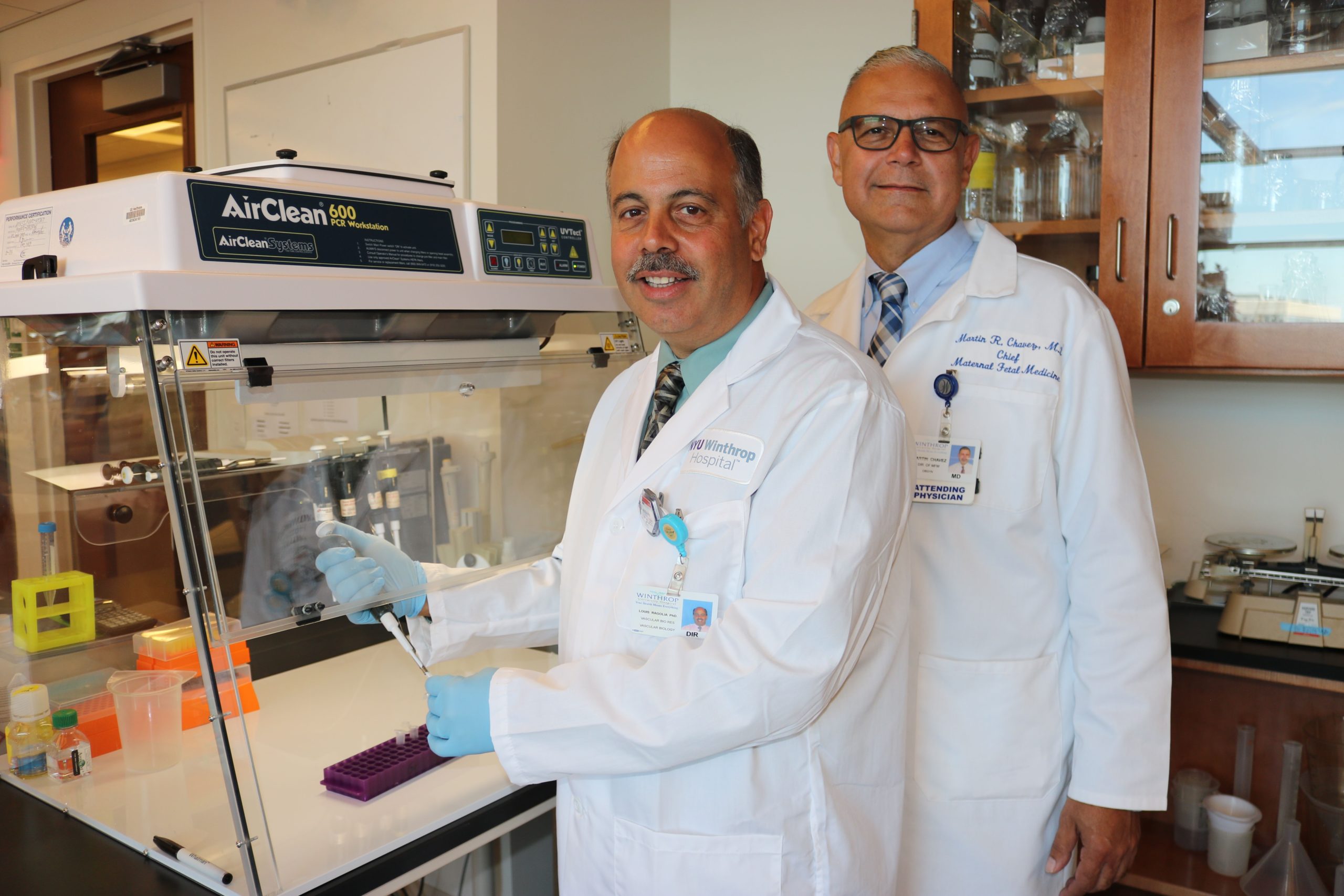NYU Winthrop Hospital is working with a private biotechnology company to develop a test that can identify the risk of preterm births.
The company, Progenity, and the Mineola hospital will carry out research and development on a biomarker that has been discovered by a hospital researcher.
“NYU Winthrop’s biomarker represents a potential breakthrough in predicting preterm births, which may save lives and decrease the rate of life-threatening neurological issues in preterm infants,” said Louis Ragolia, director of biomedical research at NYU Winthrop, who discovered the biomarker.
“Progenity is providing exceptional expertise to harness the full capabilities of this important discovery in women’s health,” he said.
He explained that at around 20 weeks in a pregnancy researchers would collect cervical and vaginal secretions via a kit they are developing to look for a certain enzyme that produces a lipid called prostaglandin D2, a hormone-like product that contributes to early contractions and preterm labor.
Work by Ragolia led to the full characterization of the enzyme and its clinical effects relative to the risk of early delivery and preterm birth.
Ragolia said he hopes that this test could put fearful parents at ease during pregnancy.
“This marker shows great promise to inform the development of a novel biomarker panel for preterm birth. Combining the diagnostic test development expertise of Progenity with NYU Winthrop’s leading clinical center and state-of-the-art research facility strongly positions this partnership for success,” said Matthew Cooper, chief scientific officer at Progenity.
Cooper said the company is “continually striving” to make health care more precise with new technologies that can prevent potentially fatal complications and bring about better outcomes for a mother and child.
“It’s not perfect, but we’re working on it,” Ragolia said of the biomarker test.
“The successful development of this test could enable us to proactively manage and screen for the risk of preterm delivery rather than being reactionary. No one test should be used in isolation, but this biomarker panel for preterm birth could be a powerful tool,” said Martin Chavez, chief of the Division of Maternal-Fetal Medicine and Fetal Surgery at NYU Winthrop Hospital.
As part of the initiative, NYU Winthrop granted Progenity an exclusive license to key intellectual property for which the hospital holds patents. These patents pertain to the biomarker for predicting preterm births, and the two organizations are collaborating on studies to identify additional preterm birth markers, as well as the clinical validation of other reproductive health tests for Progenity.



